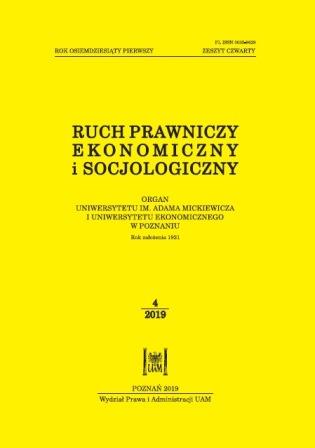O pełnomocnictwie. Przyczynek do analizy podstawowych konstrukcji cywilistycznych
On the power of attorney. An introduction to an analysis of the basic concepts of civil law
Author(s): Michał KućkaSubject(s): Constitutional Law, Civil Law
Published by: Uniwersytet Adama Mickiewicza
Keywords: power of attorney; expiration of authorization; principal’s capacity for legal acts; capacity to authorize; incapacitation of a principal;
Summary/Abstract: The power of attorney to perform a particular legal act must be considered on two levels: general and specific. The former refers to granting the power of attorney, thus the capacity of a principal to authorize someone else to represent him or her. The latter relates to the capacity of a principal to perform a legal act to which he or she authorized an attorney-in-fact. Limitation of legal capacity or loss of subjective right (for example property rights) do not affect the power of attorney (it does not expire). The full incapacitation of a principal, however, leads to the expiration of the power of attorney. The interests of the principal are in each case duly protected: in the event of the principal’s incapacitation an attorney-in-fact acts as the alleged attorney-in-fact – falsus procurator (the act performed by the alleged attorney-in-fact is void or voidable and its validity depends on confirmation by a statutory representative under Article 103 para. 1 of the Polish Civil Code); in the event of limitation of the legal capacity of the principal (partial incapacitation) – a legal act performed by an attorney-in-fact is subject to the control of a statutory representative (just like an act carried out by a person with limited capacity for legal acts – pursuant to Article 18 para. 1 of the Polish Civil Code) and sometimes also requires authorization for a court (Article 101 para. 3 of the Polish Family and Guardianship Code); in the event of the loss of the subjective right by a principal, a disposition of that right conducted by an attorney-in-fact will generally have no effect (unless for instance the prerequisites for acquisition of that right in good faith are met).
Journal: Ruch Prawniczy, Ekonomiczny i Socjologiczny
- Issue Year: 81/2019
- Issue No: 4
- Page Range: 99-110
- Page Count: 12
- Language: Polish

